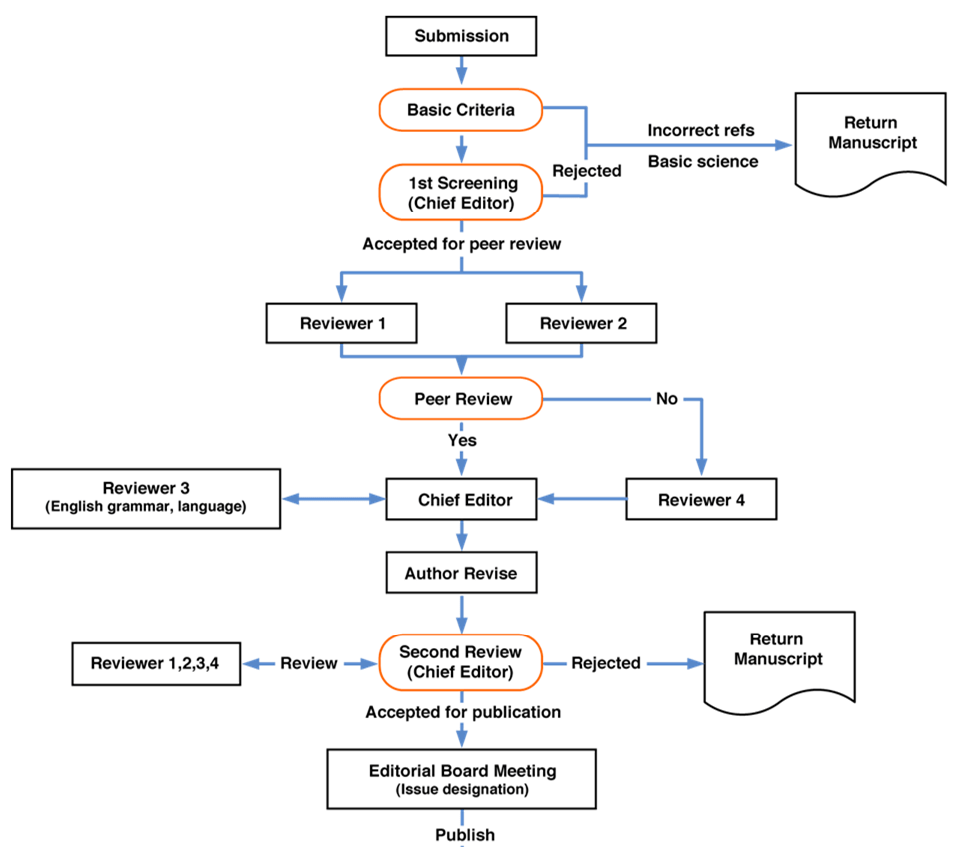Peer Review Policy
Papers submitted for Gyanshauryam, International Scientific Refereed Research Journal (GISRRJ) are subject to accurate peer review so as to ensure that the research published is quality content.
Before the beginning of the refereeing process, manuscripts are initially screened by the editors. At this stage manuscripts may be rejected directly by the editors if deemed to be beyond the scope of the journal, or scientifically or linguistically substandard.
Manuscripts that have successfully gone through the screening stage are then sent out for review and all correspondence takes place via e-mail. Although the peer-review process is accelerated by the use of electronic communication, high-quality peer-review standards are applied to all manuscripts submitted to the journal.
Each manuscript is sent to at least two independent referees. Gyanshauryam, International Scientific Refereed Research Journal employs a ‘double blind’ review process: authors are not told who reviewed their paper, and reviewers are not told who wrote the paper. Members of the editorial team cannot be peer reviewers.
Peer reviewers are asked to give their opinion on a number of issues pertinent to the scientific and formal aspects of the paper, and to evaluate papers on grounds of originality, quality of empirical work and argument, quality of research methodology or/and argumentation and quality of written language. In addition, non-discriminatory language is mandatory; sexist or racist terms should not be used, and their presence will result in immediate rejection by the editors. All relevant information will be forwarded to the author(s).
REVIEWER RECOMMENDATIONS
Peer reviewers will have the following possible options for each article:
- Accept Unconditionally
- Accept after revision
- Revise and resubmit
- Reject Unconditionally
The revisions should be made according to reviewer comments along with their response on each specified comment. The author should send his views and consent through author response form to the reviewer for re-evaluation. The maximum time of revision will be 10 days based on major or minor revisions.
The final decision to accept or reject the paper and the recommendation is of handling editors who has been responsible for the evaluation of the paper.
All peer-review reports and related correspondence will be archived by the journal. This documentation may be made available to a third party in the event of an audit.
GISRRJ is committed to prompt evaluation and publication of fully accepted papers. To maintain a high-quality publication, all submissions undergo a rigorous review process. Characteristics of the peer review process are as follows:
-
Simultaneous submissions of the same manuscript to different journals will not be tolerated.
-
Manuscripts with contents outside the scope will not be considered for review.
-
Papers will be refereed by at least 3 or 4 experts (reviewers) as suggested by the editorial board in which 01 from India and rest 02 or 03 from overseas.
-
In addition, Editors will have the option of seeking additional reviews when needed.
-
Authors will be informed when Editors decide further review is required. All publication decisions are made by the journal’s Editors-in-Chief on the basis of the referees’ reports (reviewers report).
-
Authors of papers that are not accepted are notified promptly.
-
All submitted manuscripts are treated as confidential documents. All submitted papers will be reviewed by double blind review process.
-
All manuscripts submitted for publication in GISRRJ cross-checked for plagiarism software. Manuscripts found to be plagiarized during initial stages of review are out-rightly rejected and not considered for publication in the journal.
-
In case if a manuscript is found to be plagiarized after publication, the Editor-in-Chief will conduct preliminary investigation, may be with the help of a suitable committee constituted for the purpose. If the manuscript is found to be plagiarized beyond the acceptable limits, the journal will contact the author’s Institute / College / University and Funding Agency, if any.
GISRRJ strictly uses following double blind peer review process:

